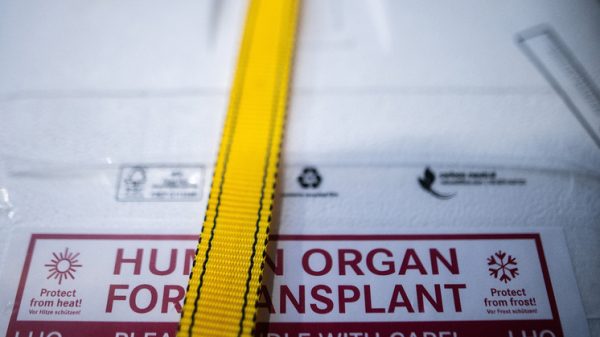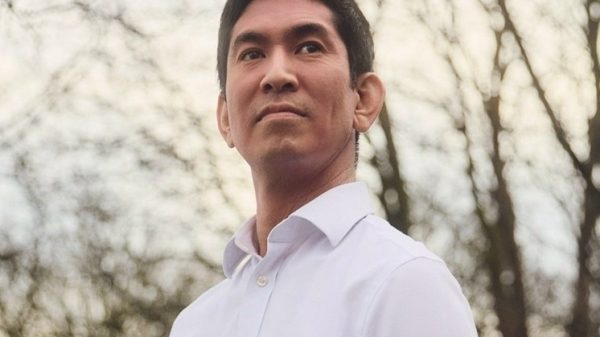 JP Williams in action for the Lions against South Africa in 1974 Photo: Shutterstock
JP Williams in action for the Lions against South Africa in 1974 Photo: Shutterstock
JP Williams, legendary international Welsh and legend of British and Irish lions and barbarians, died aged 74.
Williams, a defender known for his courage and determination, won three Grand Slams in 1971, 1976 and 1978 as a member of the British and Irish Lions and Barbarians. a key figure in Wales' golden era of success, along with other mainstays such as Gareth Edwards and Gerald Davies.
He earned 55 caps and represented the Lions in a further eight Tests across two tours: to New Zealand in 1971 and to South Africa three years later. The Lions went on to win the Test series on both occasions.
The death of Williams, who became known around the world by his first three initials, was announced by Bridgend Ravens RFC in a social media post on Monday evening.
 JPR Williams was instantly recognizable — even to non-rugby fans — thanks to his unmistakable sideburns. Photo: Shutterstock
JPR Williams was instantly recognizable — even to non-rugby fans — thanks to his unmistakable sideburns. Photo: Shutterstock
“Bridgend Ravens are saddened to hear of the passing of JPR Williams,” it said.
“One of Bridgend's most decorated players and a global rugby icon, J.P. most recently he was president of the club. Our thoughts are with JPR's family and friends at this sad time.»
A later statement from Williams' family, wife Scylla and his children said:
«JPR died peacefully today at the University Hospital of Wales, surrounded by his loving wife and four children, after a short illness fighting a courageous battle with bacterial meningitis.»
“The family requests privacy during this difficult time.”
Educated at Bridgend Boys' Grammar School and then Millfield School in Somerset, Williams emerged as one of the world's top tennis talents and won the British National Junior Championships, often erroneously referred to as junior Wimbledon but distinguished from the men's singles by All-Russian tennis tournament. England Club, 1966. However, he retired from the sport when he turned professional and concentrated on rugby to complement his medical training at St Mary's Hospital in London.
“My father didn’t like professional sports, so open tennis made my decision easier,” Williams said in an interview several years later. “I decided to go to university to study medicine and focus on rugby in my spare time.
“All of us in the Wales team had offers to become professionals in rugby [league], but there was a terrible disease. -feeling for those few who accepted such offers. They were often ostracized, and I don't think my father would have spoken to me if I had turned professional.»
 JPR Williams (left), along with Gareth Edwards, was an extremely popular figure in Welsh and international rugby. Photo: Getty Images/Stu ForsterTransferring to London Wales, Williams made his debut for Wales in 1968. He captained his country five times, winning six Triple Crowns as well as three clean sheets. He last played for the national team in 1981, although he later represented Tonda in his fifties. He was always an eye-catcher on the field with his unmistakable sideburns and rolled-up socks, his earnest playing style matched by his career as an orthopedic surgeon.
JPR Williams (left), along with Gareth Edwards, was an extremely popular figure in Welsh and international rugby. Photo: Getty Images/Stu ForsterTransferring to London Wales, Williams made his debut for Wales in 1968. He captained his country five times, winning six Triple Crowns as well as three clean sheets. He last played for the national team in 1981, although he later represented Tonda in his fifties. He was always an eye-catcher on the field with his unmistakable sideburns and rolled-up socks, his earnest playing style matched by his career as an orthopedic surgeon.
“I used to say I spent half my life breaking bones on the rugby field , and then the other half puts them back together in the operating room,” Williams wrote in his 2007 autobiography, JPR: Considering the Breaks – My Life in Rugby.
Williams started out as a fullback for the team. the Barbarians' 23-11 victory over New Zealand in 1973 at Cardiff Arms Park, which celebrated its 50th anniversary last year. Indeed, he was part of the mesmerizing counter-attack that led to Edwards' first try.

Three years later On the same A moment encapsulated Williams' bravery as a trembling, try-saving tackle from Jean-Francois Gourdon helped Wales hold off France and secure the Grand Slam.























































Свежие комментарии